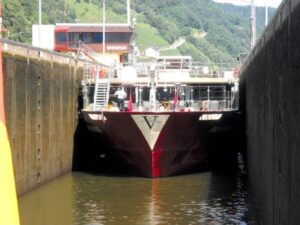Navigating Supply Chain Disruptions: The Moselle River Lock Closure
 Recent events have underscored the vulnerability of global supply chains to unexpected disruptions. A notable incident is the Moselle River lock closure, which has significantly impacted logistics operations across Europe.
Recent events have underscored the vulnerability of global supply chains to unexpected disruptions. A notable incident is the Moselle River lock closure, which has significantly impacted logistics operations across Europe.
Understanding the Impact
The Moselle River serves as a vital artery for transporting goods, particularly for industries reliant on bulk shipments. The closure of its locks has led to:
- Delayed Shipments: Goods that typically traverse this route are experiencing significant delays, affecting production schedules and delivery commitments.
- Increased Transportation Costs: With the river route unavailable, companies are compelled to seek alternative, often more expensive, transportation methods such as road or rail.
- Supply Chain Bottlenecks: The sudden shift in logistics has created congestion in other transportation networks, exacerbating delays and increasing the complexity of supply chain management.
Strategies for Mitigation
To navigate such disruptions, businesses can adopt several proactive measures:
- Diversify Transportation Modes: Developing flexible logistics strategies that incorporate multiple transportation options can reduce dependency on a single route and enhance resilience.
- Enhance Supply Chain Visibility: Utilizing advanced tracking and analytics tools enables real-time monitoring of goods, allowing for swift adjustments in response to disruptions.
- Collaborate with Logistics Partners: Building strong relationships with multiple logistics providers can facilitate quicker access to alternative routes and solutions during crises.
- Invest in Inventory Buffers: Maintaining strategic stock reserves can cushion the impact of delays, ensuring continuity in production and fulfillment.
Conclusion
The Moselle River lock closure serves as a reminder of the fragility of supply chains in the face of unforeseen events. By implementing strategic measures and embracing technological solutions, businesses can enhance their resilience, ensuring stability and efficiency even amidst disruptions.
